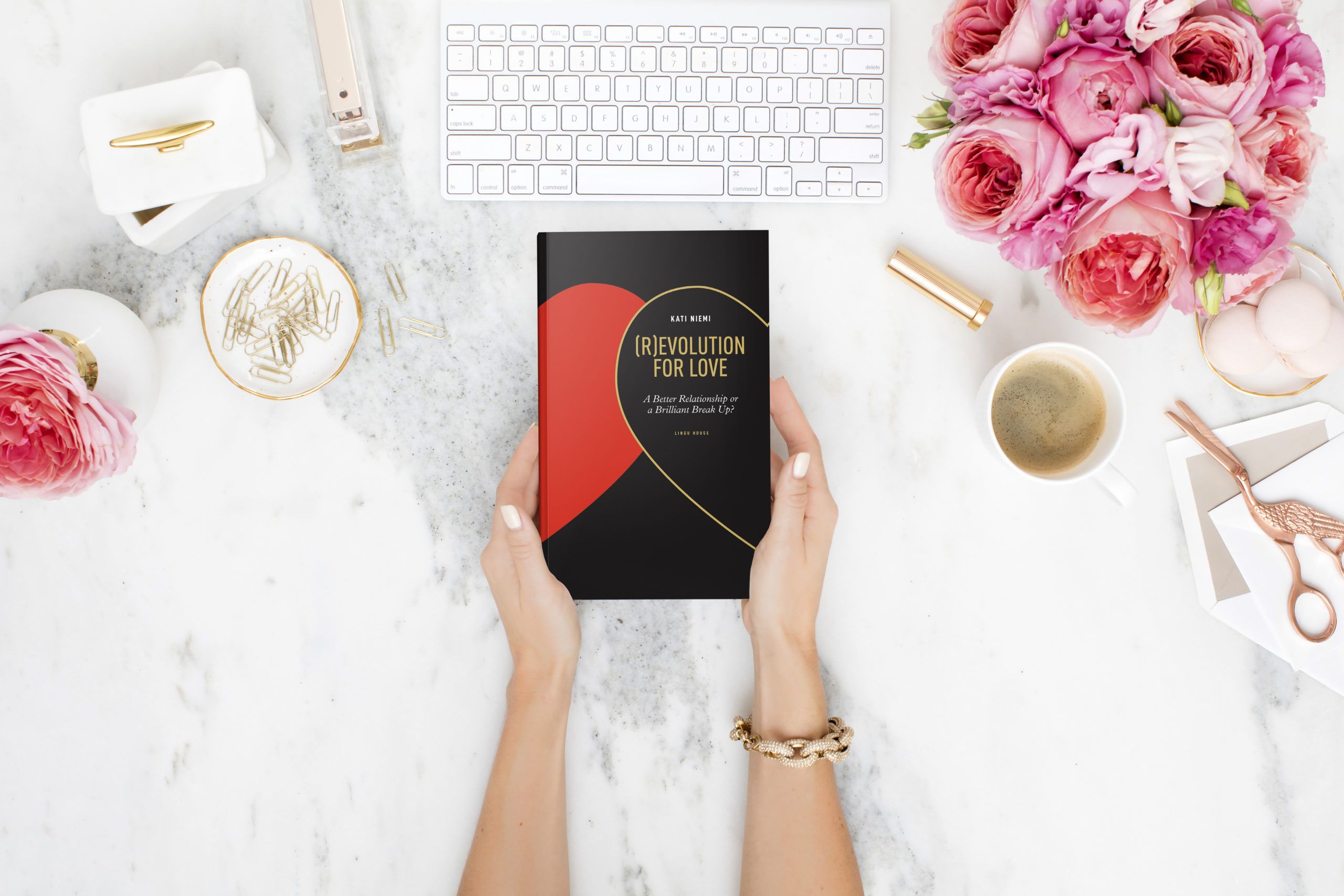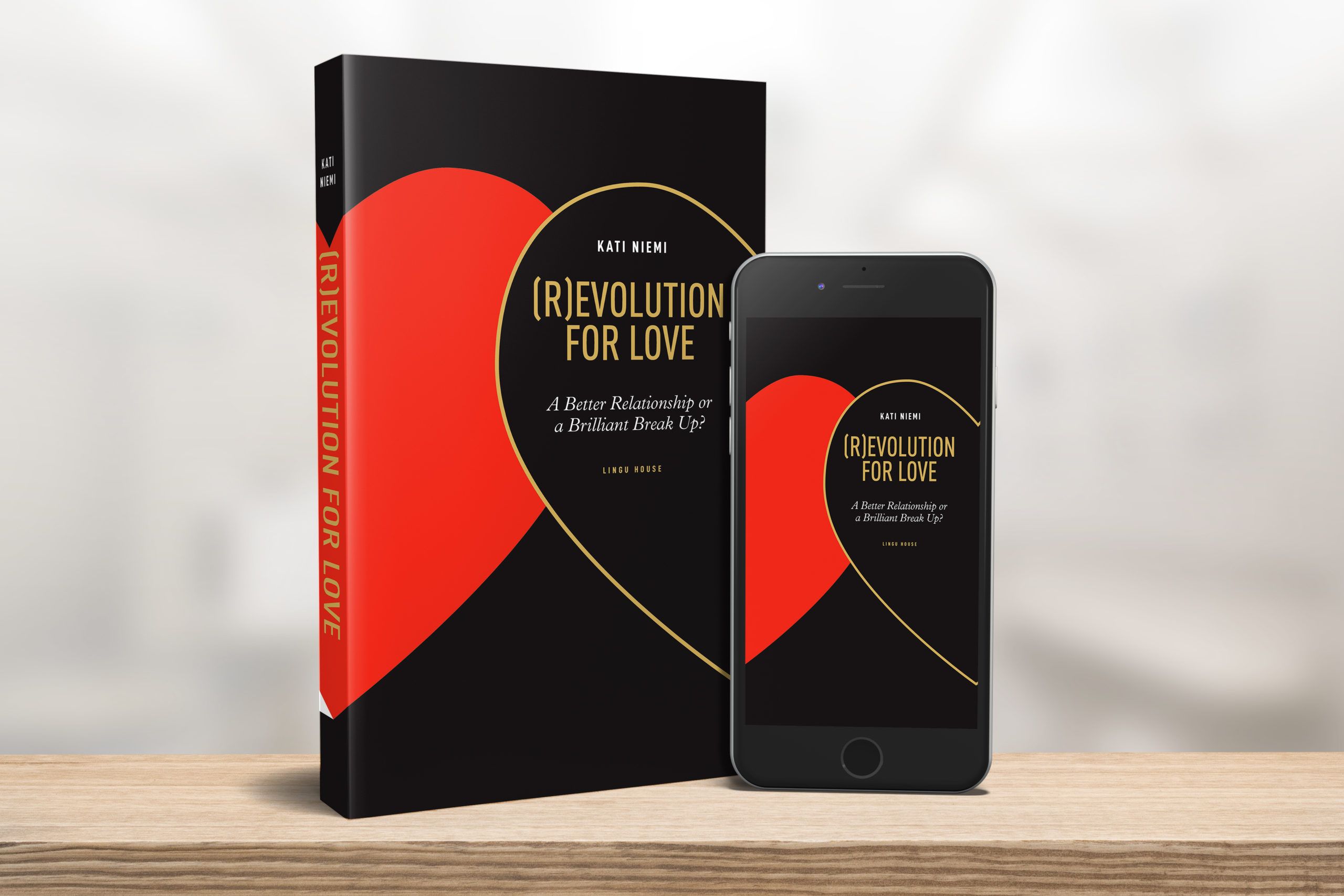When a couple is in the middle of relationship problems, the interpersonal and communication skills of both partners are put to test. We feel we should be empathetic or sympathetic to the partner who is going through a difficult time. But what do those terms actually mean? What’s the difference between sympathy and empathy? Or are they effectively the same thing? What is empathy and how does an empathetic partner behave? Is sympathy essentially different from empathy? And how can I be sympathetic towards my partner or ex? Should I be, or does sympathy do more harm than good?
In this post, I’ll be discussing the following:
- What's the difference between sympathy and empathy? Do they have anything in common?
- What is an empathetic or a sympathetic person like in practice?
- Are some people naturally more empathetic than others? Can I learn empathy?
- Is there such a thing as too much empathy or too much sympathy
- What is positive or problematic about empathy and sympathy?
- Can I learn to become better at showing empathy and sympathy towards my partner?
Showing empathy and sympathy towards your partner, ex-partner and others
When a couple is having problems in their relationship or breaking up, the situation has an impact on people around them. So how can you show sympathy – or empathy – towards your loved ones when they are going through relationship problems or a break up? How does a sympathetic/empathetic person not behave when reacting to the relationship problems or break up of their loved ones?
What are compassion and self-compassion? Why do we need all these terms? Aren’t we ultimately talking about one thing: being kind to others and yourself?

Online Coaching
Happy to help you! Welcome to book your online coaching session with the certified Coach, NLP Trainer, and Clinical Hypnotherapist Kati Niemi! Please select your
True enough, all these terms are closely linked with the central theme of emotional skills. To simplify, empathy is always helpful, sympathy can sometimes be problematic. So if your ex in their anger blames you for not having any sympathy, your response could be that you prefer to be empathetic with them 🙂
So what is the difference between empathy and sympathy or compassion and self-compassion. Clarifying these concepts will help you find the right ways to be empathetic and sympathetic towards you partner and other loved ones (including yourself!).
How are empathy and sympathy similar?
Empathy and sympathy do overlap but only partially. Let’s look at the similarities first.
Both words, empathy and sympathy, are based on the same Greek word path (πάθ) or pathos (πάθος), which can mean either ‘feeling’ and ‘symptom’ or ‘disease’. That’s why so many medical and scientific terms are based on this same root: apathy, antipathy, pathology, pathogen, sociopath and psychopath as well as the adjective pathetic. Other terms derived from the same root include osteopathy and telepathy. For more on words derived from the Greek path, view these flashcards.
As you can see, many of the words are close but still distinct in meaning. Empathy and sympathy are useful emotional skills, while many other terms with the Greek root path are associated with diseases. Empathy and sympathy differ in meaning in certain crucial ways. Looking at the difference in the meaning will help you realise when it is best to show sympathy or empathy and when it is not.
What is empathy? What are the benefits of empathy?
Why is empathy so important in a relationship and when communicating with your ex?
As mentioned above, the word empathy comes from the Greek word for feeling or experience πάθ = path, πάθος = pathos. The prefix ἐμ = em comes from the word ἐν=en and means ‘in’. This brief etymological overview (read more here) actually says it all. Empathy literally means “in an emotion”.

How to improve your wellbeing through self-development?
Science has revealed: some adults are not mentally sufficiently developed. How to improve your wellbeing through self-development?
Empathy means the ability to put yourself in the position of another person. In other words, you can look at the given situation from their perspective in addition to that of your own.
Empathy is based on a person’s ability to identify, name and express their own feelings. The term refers to advanced and complex emotional skills that are needed in all social situations unless you enjoy falling out with people!
Empathy is therefore extremely important in a relationship and when interacting with your ex. So let’s first talk about how an empathetic person conducts themselves. We can then begin to see what the difference between sympathy and empathy is. For there is a difference even though the two are related social skills.
What does being empathetic mean in practice?
An empathetic person is able to put themselves in their partner’s or ex’s position and see a given situation from their perspective. They are able to recognise their partner’s emotions and place themselves on the same wavelength. This allows the other person to feel they are being heard, seen and understood. They understand another person’s feelings and encounter them as equals.
An empathetic person is able to distinguish between their own feelings and those of another person. They understand or at least accept the existence of another person’s perspective. As a partner, an empathetic person is able to look at the couple’s respective roles from multiple perspectives. They don’t deliberately seek conflict or pick fights.
Hello wall…
Usually misunderstandings and arguments in a relationship or with an ex are due to the lack of listening skills. This leads to an inability to understand where the other person is coming from. Usually, the only thing needed would be for both partners to understand that they see the situation through their own filter. This bias emerged in their childhood and other life experiences. All that it takes is not to assume that the partner or ex is not being deliberately difficult.

Narcissism in a Relationship: “How to Know if My Partner Is a Narcissist?”
What are the signs and causes of narcissism? Can you make a relationship with a narcissist work? Can you heal a narcissistic partner?
An empathetic person does not act superior or inferior. They accept others as their equals. Empathy does not mean lowering yourself. It means acknowledging that the other person is equal. Read more on the topic of equality in the interesting post about equality between men and women in relationships: Equality in a relationship: utopia, already achieved or gone too far?
In practice, an empathetic partner is interested in their partner. They demonstrates their interest with affectionate eye contact and body language and does not turn their back when their partner is talking. They show interest in what their partner has to say by nodding and asking questions: “Really? What happened then?” An empathetic partner does not get lost in their phone or interrupt their partner when they are talking.
The polar opposite of an empathetic person is the narcissist. A narcissist belittles, rebukes and criticises their partner. For more about narcissism, read this blog post: NARCISSISM IN A RELATIONSHIP: Is my partner a narcissist?
Are some people naturally empathetic or is it a skill that can be learnt?
Some people are naturally more empathetic than others. Like with all personal characteristics, empathy is a quality based partly on a genetic disposition and partly on learnt skills. Learnt skills are behaviours adopted as part of our upbringing that later evolve into automatic empathy. If your family is full of empathetic individuals, probably your genetic disposition alone. On top of that, empathetic parents are likely to bring up children who are also empathetic. Genetic and environmental factors are in constant interaction.
The cognitive and thereby our emotional pathways in the brain are in constant state of flux throughout our lives. Neuroplasticity means that our brain is reshaped with every new experience. Type 1 psychopathy (from the Greek path as explained above) is predominantly genetically tendency while Type 2 psychopathy is more typically a result of childhood abuse and trauma. Our upbringing and later experiences shape the characteristics that we present – in good and bad.
Our brains change throughout our lives
Unless your brain wasn’t plastic, it could not remember tomorrow what you did today. Your experiences are stored as memories and you choose the actions, or experiences, which shape your brain in how to react, for example, with more empathy towards your partner or ex in future encounters. Even if you were not born empathetic and you did not receive the kind of upbringing that would have supported your empathy skills, you can still learn empathy through practice. Probably you have practiced these skills your relationship to some extent. However, there is always room for improvement.

Why does our conscious mind question the power of the unconscious mind?
Is the power of the unconscious mind fake news and is trying to harness it to achieve our full potential a waste of time? What do we mean by the unconscious mind?
Empathy is not just an automatic, natural ability to empathise. You can also decide to practice empathy in any interactive situation. Practicing a new skill takes more work now that you’re an adult compared to absorbing empathetic qualities as a child.
Empathy is important for us because allows us to understand other people. That is the simple reason why empathy is so important. Sharing your life with your partner and communicating with your ex is much easier if you consciously practice your empathy skills. My book (R)evolution for love includes several mental exercises some of which focus on empathy. Often your dearly beloved partner or your occasionally infuriating ex are the best sparring partners!
What is sympathy? What is sympathetic behaviour like?
Sympathy is the ability to feel happy about another person’s fortune and pleasure and to feel pain or sorrow when another person is experiencing difficulty. It means identifying with another person’s emotions.
Sympathy can be explained from a neuropsychological perspective by looking at the mirror neurons in the brain. The mirror neurons in a sympathetic person’s brain mirror the emotions they recognise in their partner (or some other person) so that the person can themselves identify with the emotion. For example, when you watch people’s mishaps on funny home videos, you can almost feel the pain of behalf of the person.
You are feeling sympathy for the people on the video. Similarly you could feel sympathy for your partner in their spectacular blunders. We all have mirror neurons, which means that we are all capable of sympathy. Other people’s joys and sorrows are contagious and we can read the tiniest, implicit emotional hints.
How to you sympathise with your partner, ex or friends when they tell you about their negative and positive experiences?
When are you being too sympathetic?
Sympathy means the ability to share another person’s, such as your partner’s, feelings. As a rule, this is a good quality to have. Showing sympathy is not always helpful.
For example, in certain professional settings, too much sympathy is harmful. A doctor can’t be crying when telling their patient they have cancer. A couple’s therapist can’t let themselves be sad for their client whose partner has cheated or dumped them, no matter how sorry they are for them.

FREE EBOOK ‘I love you but…’ – To Break Up or Not to Break Up?
Refocus your energy now to improve your love life! This FREE ebook ‘I love you but…’ will help you move towards a better relationship or
These examples do not mean that doctors should not have compassion (empathy!), to the contrary. Therapists are allowed to have feelings. Nobody wants to talk to a wall about their problems or push a button from a machine to get a prescription. But the compassion must remain within limits if a practitioner is to remain professional and objective. This is also goes for management. As a manager you should show your emotions but you shouldn’t go too far with them.
A sympathetic person identifies vividly with another person’s feelings
However, they are not that quick to understand their perspective objectively. A sympathetic person approaches the situation strictly from their own perspective even if they have compassion for the other person.
A sympathetic person is often seen as polite, considerate, genuine and warm towards others. But interestingly, a wrong type of compassion and excessive sympathy can be harmful.
A sympathetic person can feel deep sadness when their friend is feeling sad, and yet they don’t go beyond commiseration and pity. This is not helpful in the long run if they, for example, need to properly process grief.
Sympathy leads a person to feel rage for their enraged partner, because strong emotions are particularly contagious. Sympathising destructive feelings is harmful for both. In these situations, empathy is the best reaction instead of too much sympathy.
A particularly sensitive and sympathetic person can easily become overwhelmed – or be a tiring partner and ex.
Excessive sympathy can be mentally draining for the sympathetic person themselves and their partner (or ex). Sometimes what we need is sensible words rather than pity and anger on our behalf. Anger is, in fact, not very sympathetic. It falls more under the scope of narcissism, as can be read in this blog post: NARCISSISM IN A RELATIONSHIP: Is my partner a narcissist?

What is an open relationship? Does it lead to breaking up?
What is an open relationship? Who are non-monogamous open relationships for? Is your partner suggesting consensual non-monogamy?
A particularly sensitive and sympathetic person would benefit from practicing conscious dissociation from a situation so that they would not feel so strongly when associating themselves with it. If you are interested in learning more about these mental skills, read my book (R)evolution for Love. Association and dissociation are useful skills for those in a relationship and after breaking up when communicating with your ex. When you learn to be flexible with your behaviours, communication even with the most difficult of exes is possible without completely losing your temper.
Building a thicker skin by practicing dissociation adds to your resilience both at home and in the workplace. One of my interviewees for the (R)evolution for Love said:
“I am so used to observing and deciphering other people’s demeanours that by the end of the day I’m usually completely exhausted.”
The most important area of development for kind people is watching their own boundaries and practicing self-compassion and stress management skills.
What’s the difference between sympathy and empathy?
The difference between empathy and sympathy is unclear to many. However, they are two distinct things and both have their purpose. It is important to realise that sympathy is not always helpful and, on the other hand, we could practice empathy more often and consciously.
As was noted above, sympathy and empathy are derived from the same root. However, the prefix sym here means “with” or “together” (em in empathy means “in”). To simplify, we can say that empathy means “inside emotion” and sympathy “with emotion”. An empathetic person is able to look at the world from another person’s perspective and understand their emotions. A sympathetic person, instead, lives the other person’s emotions and takes on those emotions, sometimes to the extreme.
Are sympathy and empathy useful?
More than sympathy empathy is useful in difficult situations at work, although sympathy is also a useful quality in many situations, including in a professional setting. It’s a great feeling if you can talk about some happy event in your life at work and your colleagues, thanks to their mirror cells, genuinely join in your joy rather than keep their neutral or slightly dour face all day long.
A sympathetic person may pity or commiserate with their partner or friend, while an empathetic person is able to see matters from another person’s perspective and understand the difficult feelings they may be going through without having to feel their sadness or anger. An empathetic person is able to see the options available for another person better than a sympathetic person who is engulfed by their feelings. If you are able to be empathetic and not too sympathetic when you partner is going through a crisis, you will be able to stay objective. Objectivity will allow you to see the problem in proportion and to see the best solutions available and to discuss them with your partner when the time is right.
Can sympathy save a relationship?
Sympathy and empathy are both forms of compassion and acceptance of another person. With most couples or workplaces, too much empathy or sympathy is seldom the problem. The crucial thing is to practice your emotional skills both at home and at work.
After reading this blog post, ask yourself:
- How does it feel when you notice that your partner or ex is genuinely listening to you?
- In what ways do you show that you are able to see things from their perspective?
- How do you feel if you have been indifferent or unempathetic towards your partner or ex?
- What are your reactions to each other’s kind words, praises, approval and apologies?
- How socially skilful are you in showing empathy and sympathy towards your partner or ex?
- How could you improve your listening and other communication skills?
- Where could you find the energy and kindness in your own life so that you can effectively manage your stress and are able to show empathy even in challenging situations?
Take time to consider these questions. The best tip for better communication with your partner or ex is to first figure out how you would like to be treated. After that, it will be easier to take note when others are being good, empathetic and sympathetic towards you and mirror that.
Sympathy vs. empathy: what’s the difference?
I hope that this discussion of empathy and sympathy and their differences has given you practical tools for your day-to-day life without partner or ex. The tools are equally necessary when communicating with your gaily, friends, colleagues, customers and business partners – everyone.
Remember that your personality traits are ultimately simply a cluster of different traits that you prioritise in your behaviour. This means you can learn to become a genuinely empathetic and suitably sympathetic partner or friend.
Happy to hear from you!
With Love
Your Coach Kati
Clinical Hypnotherapist, NLP Trainer, MSc., Author, Blogger
[email protected]

“FIVE STARS!” Book reviews: (R)evolution for Love (Amazon Books)
“Five Stars!” Editorial reviews and reader reviews of (R)evolution for Love – A Better Relationship or a Brilliant Break Up? Amazon books

FEEDBACK TO LOVE! Reader reviews (Book+Blog)
RELATIONSHIP GUIDE: BOOK REVIEWS – We are blown over by the feedback the (R)evolution for Love relationship blog and guide have received. WOW!

FREE AUDIOBOOK: Audible, Google Play and other stores’ free trial
Audiobook lovers benefit from FREE trial periods of book stores. Enjoy (R)evolution for Love on Amazon Audible, Google Play & other stores

FREE EBOOK ‘I love you but…’ – To Break Up or Not to Break Up?
Refocus your energy now to improve your love life! This FREE ebook ‘I love you but…’ will help you move towards a better relationship or

How to improve your wellbeing through self-development?
Science has revealed: some adults are not mentally sufficiently developed. How to improve your wellbeing through self-development?

Why does our conscious mind question the power of the unconscious mind?
Is the power of the unconscious mind fake news and is trying to harness it to achieve our full potential a waste of time? What do we mean by the unconscious mind?

INFIDELITY and the collected excuses: The good reasons for cheating
CHEATING: What is a good reason to cheat? What do the cheated partner, “the other woman/man” or the cheater choose to believe in?

What is an open relationship? Does it lead to breaking up?
What is an open relationship? Who are non-monogamous open relationships for? Is your partner suggesting consensual non-monogamy?

Narcissism in a Relationship: “How to Know if My Partner Is a Narcissist?”
What are the signs and causes of narcissism? Can you make a relationship with a narcissist work? Can you heal a narcissistic partner?

Aromatherapy for Libido & Romance – The Best Essential Oils for Love
Sense of smell influences our sexual desire and performance. Aromatherapy tips and the best essential oils for romance, libido, sex and love.

When positive thinking becomes toxic
What is too positive thinking like? Where should we focus the power of our mind and our willpower?

TO BREAK UP OR NOT TO BREAK UP? Should I stay or should I go?
How do you know if you should leave or not. How to make the decision to break up or to improve your relationship? To break up or not?

JEALOUS PARTNER: Does your partner’s jealousy drive you mad?
When your partner’s jealousy is getting too much, what could help? What to do when a jealous partner takes the joy out of your relationship?

THE JEALOUS TYPE: Am I too jealous?
“I feel so jealous because of my partner” Jealousy is a painful feeling. Use the power of your subconscious and let go of jealousy!

Stress Management: 10 Tips How to Prevent & Reduce Symptoms
How to prevent, manage and reduce stress in a busy life? Causes and symptoms of stress, and good tips for stress management and wellbeing.



























